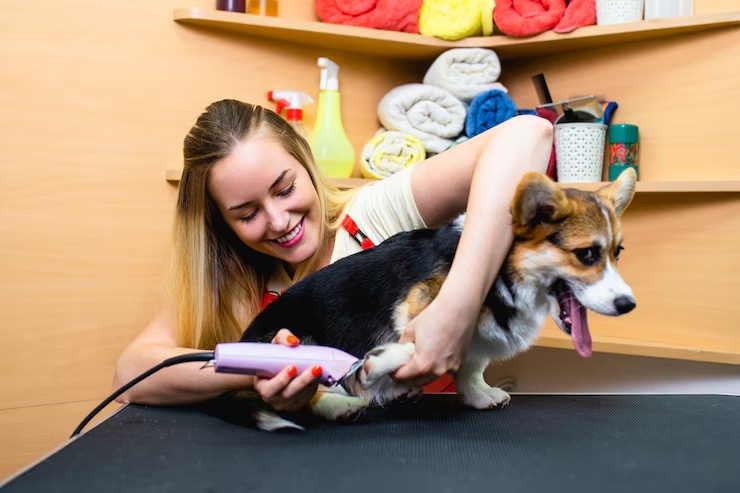Dogs are often referred to as “man’s best friend,” and it’s no surprise why. These loyal companions bring joy, comfort, and unconditional love into our lives. As responsible pet owners, it’s essential to ensure that our dogs receive the best care to live a long, healthy, and happy life. From feeding to grooming, training to health monitoring, every aspect of dog care plays a crucial role in their wellbeing.
In this guide, we’ll explore everything you need to know about dog care, focusing on high-traffic keywords related to dog health, nutrition, grooming, and training. Whether you’re a first-time dog owner or a seasoned pet parent, this article will provide valuable insights to improve your pup’s quality of life. Let’s dive into the essentials of dog care.
1. Providing Proper Nutrition for Your Dog
A well-balanced diet is the foundation of good health for your dog. Just like humans, dogs need a proper mix of nutrients to thrive. A healthy diet keeps your dog’s coat shiny, boosts energy levels, and ensures strong bones and muscles.
- High-Quality Dog Food: Invest in premium dog food that meets your pet’s age, breed, and health requirements. Look for food with high-quality protein, healthy fats, vitamins, and minerals. Avoid brands that include fillers like corn, soy, and by-products.
- Portion Control: Overfeeding your dog can lead to obesity, which is a major health risk. Use a portion control guide based on your dog’s size and activity level. Consult your veterinarian for recommendations on how much to feed your dog each day.
- Hydration: Always ensure that your dog has access to clean, fresh water. Proper hydration is key to maintaining kidney function and overall health.
2. Regular Vet Visits and Preventative Care
Routine veterinary check-ups are essential for detecting early signs of illness and ensuring your dog’s overall health.
- Vaccinations: Keep up with the necessary vaccinations to protect your dog from common diseases like rabies, parvovirus, and distemper. Your veterinarian will provide a vaccination schedule tailored to your dog’s age and lifestyle.
- Flea and Tick Prevention: Fleas and ticks are common pests that can lead to severe health issues, including Lyme disease. Use vet-approved flea and tick preventatives regularly.
- Heartworm Treatment: Heartworms are parasitic worms that can damage your dog’s heart and lungs. Monthly heartworm prevention medications are available, and a simple blood test can determine whether your dog is at risk.
3. Dog Grooming for a Healthy Coat and Skin
Grooming is an important aspect of dog care, and it goes beyond just keeping your pet looking good. Regular grooming helps maintain your dog’s coat and skin health, reduces shedding, and strengthens the bond between you and your pet.
- Brushing: Regular brushing helps prevent mats and tangles in your dog’s coat and removes dirt and debris. Some breeds require more frequent brushing than others. For example, long-haired dogs, like the Shih Tzu and Afghan Hound, need daily grooming, while short-haired breeds, like the Beagle and Chihuahua, require weekly brushing.
- Bathing: Bathing your dog removes dirt, oil, and odor. Use a gentle dog-specific shampoo to avoid irritating your dog’s skin. Too much bathing can dry out your dog’s skin, so aim for a bath every 4-6 weeks, or as needed.
- Nail Clipping: Regular nail trimming is essential for preventing painful nail growth and injury. If you’re unsure how to trim your dog’s nails, ask your vet for advice or take your dog to a professional groomer.
- Ear and Teeth Care: Cleaning your dog’s ears regularly helps prevent infections, especially for breeds with floppy ears. Dental care is equally important; brush your dog’s teeth with a dog-safe toothbrush and toothpaste to prevent plaque buildup and gum disease.
4. Training and Behavioral Care

Training is essential to maintaining a well-behaved dog and creating a positive environment in your home. Early socialization and training help prevent behavioral issues, and it’s easier to teach good habits when your dog is young.
- Basic Commands: Start with basic commands like sit, stay, come, and down. Use positive reinforcement, such as treats and praise, to encourage your dog when they follow commands.
- Leash Training: Leash training is essential for walks. Use a harness or collar and teach your dog to walk by your side without pulling. This will make walks more enjoyable for both of you.
- Housebreaking: If you’re house training a puppy, establish a consistent potty schedule. Praise your dog immediately after they go outside. Accidents happen, but consistency is key to successful housebreaking.
- Socialization: Expose your dog to different environments, people, and other animals. Proper socialization helps your dog become well-adjusted and less anxious or fearful in new situations.
5. Exercise and Mental Stimulation for Dogs
Just like humans, dogs need both physical and mental exercise to stay healthy and happy. Regular exercise helps burn off energy, reduces the risk of obesity, and promotes a good mood.
- Walks: Daily walks are essential for your dog’s physical and mental stimulation. The distance and intensity of the walk depend on your dog’s breed, age, and energy levels. High-energy dogs, like Border Collies and Labrador Retrievers, may require more exercise compared to older or less active breeds.
- Playtime: Interactive play, such as fetch or tug-of-war, helps keep your dog engaged and active. For dogs who enjoy chasing, you can also consider activities like frisbee or agility training.
- Mental Stimulation: Dogs need mental challenges to prevent boredom and behavioral issues. Puzzle toys, treat-dispensing toys, and training games keep your dog’s brain sharp.
6. Safety and Comfort at Home
Ensuring your dog’s safety and comfort in your home is another crucial part of responsible dog care.
- Safe Environment: Keep harmful substances like cleaning products, chocolate, and certain plants out of reach. Baby gates and dog-proofing your home can help prevent accidents.
- Comfortable Sleeping Area: Provide a cozy bed or blanket for your dog to rest on. A quiet, comfortable space promotes restful sleep and is essential for your dog’s overall well-being.
- Weather Protection: In hot weather, make sure your dog has access to shade and water. In cold weather, consider using a dog coat for smaller or short-haired breeds that may feel chilly.
Conclusion: A Happy, Healthy Dog Starts with Care
Taking care of your dog is a rewarding experience that requires commitment, time, and effort. By providing proper nutrition, regular vet visits, grooming, training, and exercise, you can help your dog lead a long, healthy, and happy life. Remember, a well-cared-for dog is not just healthy— they are happier, more energetic, and more likely to form a strong, loving bond with you.
By following these dog care tips and staying consistent, you’re giving your dog the best chance at a fulfilling life by your side. And, as always, consult with your veterinarian for personalized advice and guidance to ensure your dog’s needs are being met. Whether you’re new to dog ownership or an experienced pet parent, these steps will help you become the best pet owner possible.
